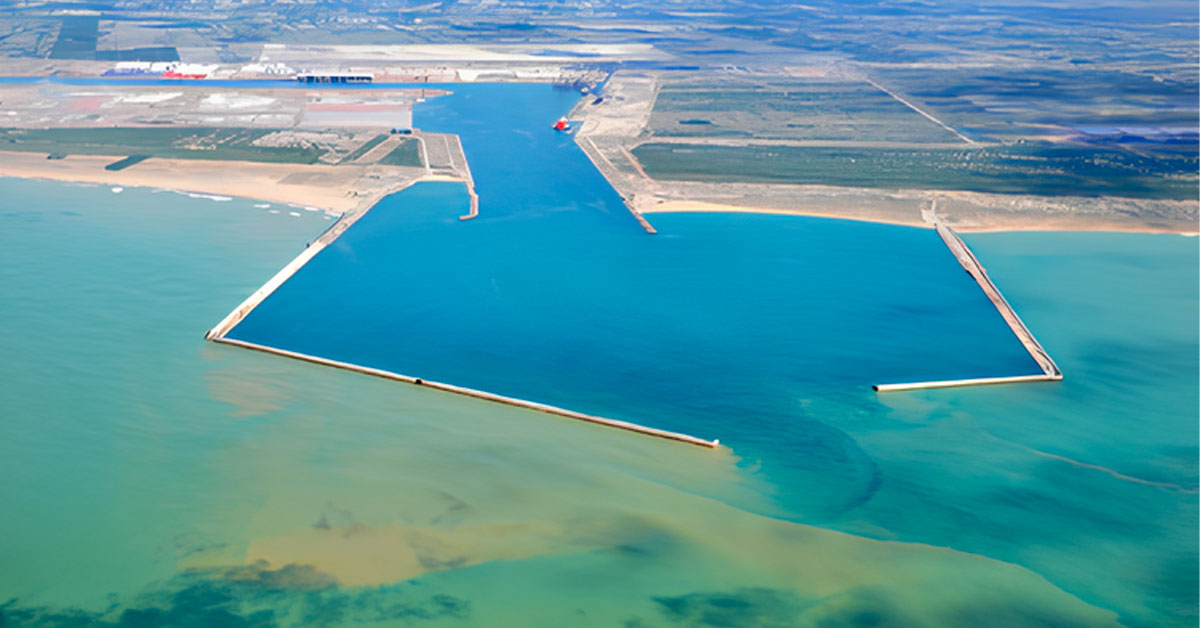GNA LNG Terminal

Sofregaz Enhances Brazil’s FSRU-Based Energy Infrastructure
- Project Name: GNA LNG Terminal
- Country: Brazil
- Project Site Location : Porto do Açu (São João da Barra, Rio de Janeiro state)
- Name of Client: GNA (JV of Prumo Logistica, BP & Siemens)
- Project Type : Detailed Engineering
- Completion Date : 2020
Located in Porto do Açu, Rio de Janeiro, the GNA LNG Terminal is a cornerstone of Brazil’s growing LNG infrastructure. At the heart of the terminal is a Floating Storage and Regasification Unit (FSRU), with a peak regasification capacity of 21 MM(n)m³/d. This facility plays a pivotal role in importing liquefied natural gas (LNG) and converting it back into natural gas for distribution to nearby thermal power plants (TPPs), bolstering the reliability of Brazil’s electrical grid, especially during periods of high energy demand.
- Gas pipelines that connect the FSRU to the power plants, ensuring seamless natural gas delivery,
- Metering systems that accurately measure gas flow, maintaining operational precision,
- Marine facilities that accommodate LNG carriers and ensure safe ship-to-ship (STS) LNG transfers, optimizing the terminal’s logistics.
The FSRU is the centerpiece of the terminal, allowing LNG to be stored and regasified offshore. This flexible infrastructure reduces the need for large onshore facilities, accelerating market entry and minimizing environmental impact. The FSRU’s 21 MM(n)m³/d regasification capacity ensures a steady supply of natural gas to support Brazil’s growing energy demands.
LNG Supply to Power Plants
The GNA terminal is designed to supply natural gas to thermal power plants (TPPs), enhancing Brazil’s energy reliability during peak consumption periods or when renewable energy sources are insufficient. The integration of Sofregaz’s gas pipelines and metering systems ensures that natural gas is efficiently delivered to these power plants at the required pressure and flow rates, safeguarding uninterrupted energy production.
Sustainable and Scalable Solutions
Sofregaz has integrated sustainability into the project by ensuring that all facilities, from pipelines to marine infrastructure, are designed to minimize emissions and energy consumption. The FSRU-based solution also allows for scalability, with potential future expansions that could increase the terminal’s capacity to meet Brazil’s long-term energy needs.
